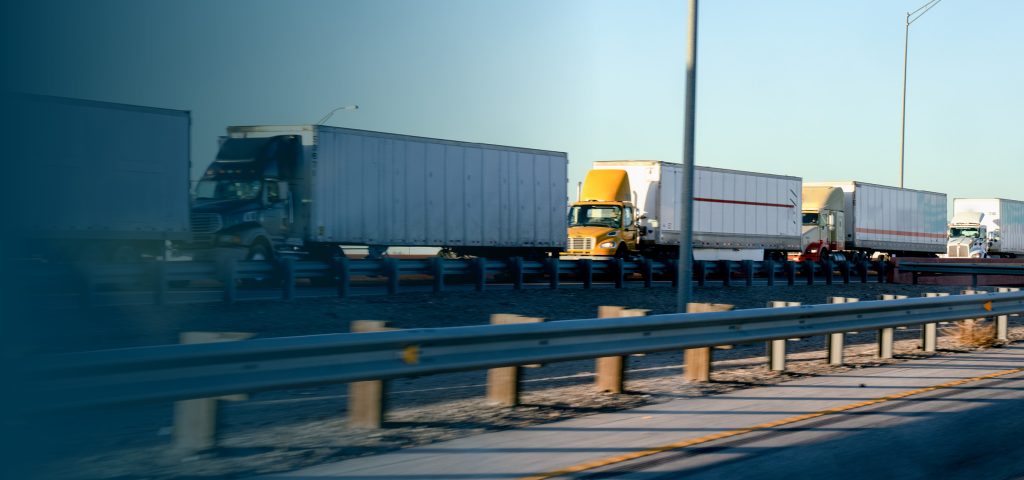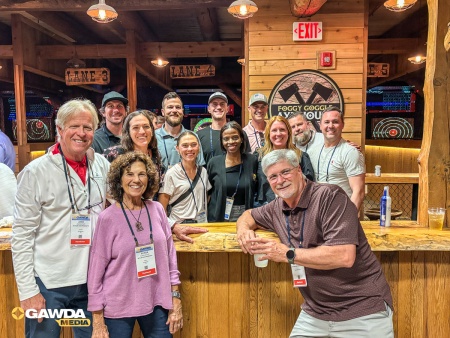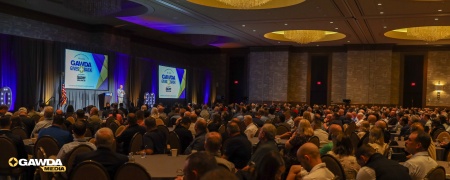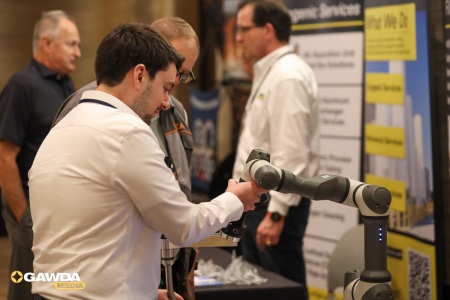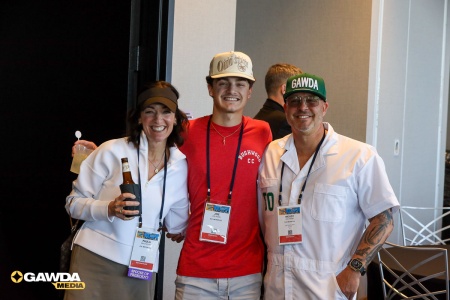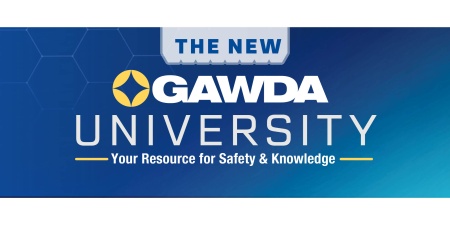GAWDA’s consultants discuss what GAWDA members can expect in 2023.
By Tom Badstubner, Marilyn Dempsey, Mike Dodd, Rick Schweitzer, and Steve Guglielmo
The GAWDA Consultant Program is a GAWDA member benefit that is included as part of your member dues to the association. It is consistently rated as one of the most valuable member benefits that GAWDA provides. Between the four of them, GAWDA’s consultants bring more than 100 years of industry-specific experience to the association.
With this being the first issue of 2023, we look back on lessons learned from last year and what we expect to see from a regulatory standpoint for the industry in 2023. GAWDA’s Consultants discussed the bevy of new legislation and proposed legislation and how it will impact members this year, as well as preview their Professional Compliance Seminar that will take place in March of this year.
Thank you to Tom Badstubner, GAWDA’s FDA and Medical Gases Consultant, Marilyn Dempsey, DHS, EPA and OSHA Consultant, Mike Dodd, DOT Consultant, and Rick Schweitzer, Government Affairs and Human Resources Consultant, for lending their time and expertise to discuss these important topics. The following is a lightly edited transcript of that conversation.
Welding & Gases Today: I wanted to start off the article by discussing the seminar that took place in October at Weldcoa. Tell me about that experience and how excited you are to do it again at Chart in March.
Tom Badstubner: Yes, March 21-23, 2023, we will be at Chart in Theodore, AL. We had 53 total attendees at the Fall 2022 Professional Compliance Seminar at Weldcoa. One-third of the attendees were in-person, and the rest were virtual attendees. We really liked this format of in-person plus virtual. It is clearly a better experience to be in-person. But there are some people who just cannot travel. And so, this, I think, really does give people an opportunity in all different situations to get good compliance training. The people of Weldcoa were awesome hosts.
Mike Dodd: I want to add onto Tom’s comments. It was great to have the in-person contact again. For us, it makes the teaching so much easier when we have that eye contact and interaction with the classroom people. Also, I know not everyone can come in person, but those that do get have a lot of interaction with the other members. They get to talk about all facets of their jobs and business during the breaks and mealtimes.
WGT: Will the March Seminar also be in-person with a virtual component?
Tom: Yes. It will be virtual and in-person. The dual format was very successful. Registration is open now, so visit GAWDA.org today to register.
Marilyn: To see the interaction between the members was amazing. They definitely shared ideas and contacts that they wouldn’t have if they weren’t attending in person. With the virtual option, you can keep your workday fluid, but there is nothing that beats that in-person experience. And now that I’m in my third year with GAWDA, I was able to sit back and really observe the interaction and how people learn from each other. The interaction leads to more questions and discussion.
Tom: And besides that, think about Michelle up at Maine Oxy. She’s a brand new, highly professional, very skilled HR professional, but she had no gas industry networking. And so, she shows up and all of a sudden she has 18 people to network with from all across the country who have exactly the same issues as they see up in Maine. And so, she accelerates her transition.
Marilyn: And she isn’t the only one who came into the industry in a safety position without being in our industry prior to that. Over the past few years, we’ve had several new safety and compliance people. They attend this seminar and leave with so many tools, not just from the consultants but also from other attendees.
WGT: Looking back at last year, did you see a tangible growth in engagement among the membership with the consultants?
Marilyn: My numbers have gone up. From 30-40 contacts per month to 300+ per month. It’s great to see that people are getting the message that compliance is attainable. They might be new to the industry or the position, or they have a better context but still have some remaining questions. So, they call me up and if I don’t have the answer then I do a little bit of digging or call the agency directly. From these calls, I’ve developed relationships with OSHA/EPA/DHS representatives – to the point where I now have their direct numbers.
And not only is the number of contacts increasing, but members are now starting to look at me as a more common resource. And during COVID, Rick, you had the same experience, right? Before, he was “the lawyer” but during COVID you became more human.
Rick Schweitzer: I’ve also seen a steady growth in my contacts with members, including hearing from companies that I have never talked to before. Getting repeat contacts from members who have multiple questions. And, like with Marilyn, they are realizing that this is a free resource. It has been, I think, gratifying to see that members are picking up on the campaign that we have had.
WGT: How much do you think that the monthly Safety meetings contribute to that approachability? Whereas before they might not have known you on a personal level.
Marilyn: I started right when COVID began. So, I can’t gauge it before that, but those meetings allowed people an opportunity to get to know me, to understand where I was coming from and that I give clear, concise business-oriented information about how to be compliant or how to respond to a citation.
Rick: I have found that when I talk about certain things during those consultant meetings that it will immediately generate questions. I talked about hiring people with criminal backgrounds recently and I got three emails that afternoon from people who had that situation, and they just wanted some guidance.
Tom: Same with the FDA compliance. I recently discussed the mandatory FDA annual records review, and I got two immediate follow-up questions from members.
WGT: It seems like the Safety Meetings are as important for spurring discussion as they are to answering existing questions. Is that fair to say?
Rick: Yeah, you don’t know what you don’t know.
Mike: I would really like to see more questions from the participants during our Wednesday Safety Meetings. I would also love to have some suggestions from members on topics to talk about on future calls. We want to make sure we are bringing them information that they want to know more about, in addition to the new items that they might not be aware of.
WGT: Any common issues that emerged during 2022 or misconceptions that you’ve had to address more than once? Any last topics you want to address before we put a bow on 2022 and move onto 2023?
Marilyn: The OSHA 2022 violation top ten came out. And, again, hazard communications was number two. Fall protection was number one, but hazard communication was number two and the first thing that they wrote on there was not having a written haz-com program. I know that OSHA doesn’t come around very often, but it is very easy to create the program, train your people on it and review the program annually. Done.
Rick: Not to toot our own horns, but I’ve noticed that among the four of us consultants, we’ve really increased our instances of working together and referring each other to members. I know that Mike and Marilyn refer lots of questions to me and I do the same thing to them. Mike made a point on our call the other day that you don’t have to know exactly who the “expert” is on a particular area. Just call one of the consultants and we will point you in the right direction. I think that is really helpful and it’s good for all of us to hear each other speak and to learn what the other ones know.
Mike: Tom and I have sent member questions back and forth for years. Many times, a member will ask us a question because they have worked with us for years and feel comfortable with us. But it may be a question that is not our area of expertise, and we will send it along to the one that does cover it. Rick and I bounce DOT items and member questions off each other many times. Together, we have been known to answer a member’s question together. Many times, one of us will have points to add that the other didn’t think of or remember to say. For years I answered the OSHA and EPA questions, but now I forward those on to Marilyn. The members will get a great detailed answer and that is our goal as consultants.
WGT: How often do you find that you get questions that you’ve never seen before?
Tom: I got a first-time question just the other day.
Rick: I did too. Mike and I both said, “We’ve never heard of this before.” So, every few months, I would say.
Marilyn: Especially with the increase in the cannabis/extraction businesses and the new regulations we’ve seen.
Tom: Marilyn, you and I had an interesting one in the last couple of weeks about this pesticide and sterilizing gas mixture. It had been probably 20 years since I fielded a question about ethylene oxide and carbon dioxide mixtures. And I really was not sure that I knew the regulations anymore. And it was refreshing to have a question that we really had to research to find the answers.
Marilyn: I had never dealt with ethylene oxide and so it was very interesting; even my EPA contact was challenged so referred me to another agent. It was a big, fun learning curve.
Mike: I have been in the industry for 49 years now and I still get new questions or a new twist on an old subject. We love them because we love new challenges. Please, members, keep asking those questions and we will keep giving you answers. It is what we do.
WGT: Is there anything for the beginning of the year that has to be filled out and finished or just a mindset that you want the members to be in at the beginning of the year?
Tom: From a medical gas perspective, it’s a good time to make sure that your training is up-to-date, and your calibrations are all up-to-date. These are frequent violations from the FDA and the first of the year is just a great time to make sure that your training and calibration plans are still working.
Rick: If you take trucks into Canada, starting the first of the year, you have to have an electronic logging device on your trucks, under Canadian rules. Obviously, you’ve had to have them in the U.S. for several years now, but the Canadian rules are different in that you have to get them approved and certified by a third-party entity that is certified by the government. In the U.S., the vendor can just self-certify that my ELD complies with the U.S. DOT regulations. In Canada, you have to have a third-party certify it for you. Which means that, in the U.S., we have 600-700 certified devices. In Canada, I think the number is 55. So, a lot of U.S. trucks are not going to be allowed to go across the border. And you need to get with your vendor immediately about that.
Marilyn: I wrote about the OSHA 300A in the December issue of the Safety Organizer. OSHA 300A series starts the compliance year and then right on the heels of that is EPA SARA TIER II. The big confusion for people concerning OSHA 300A is the method of recording. If you have 10 or more employees, you have to fill it out on paper. If you have 20 or more employees and you operate under certain NAICS code, then you must file electronically, as well as posting a paper copy.
The confusion with EPA SARA TIER II is the magic number of 10,000 pounds. People forget that they must file a SARA TIER II whenever they have a product over 10,000 pounds, even if it is an inert product like Nitrogen or Carbon Dioxide, while extremely hazardous materials often have a lower threshold. More information is included in the January Safety Organizer.
WGT: Rick, the Q4 Issue of Welding & Gases Today came out before the mid-term elections. Anything of particular note arise from those results?
Rick: Well, I think given that we are going to have a divided Congress with the Republicans taking over the House, I don’t expect to see any major legislation getting passed in the next two years. They’ll pass the spending bills. They have to do a five-year farm authorization bill and there might be something in that that impacts GAWDA members, but it’s hard to say until you see it. But, other than that, I don’t expect to see much from Congress.
It’s the agencies where there is going to continue to be lots of activity. Lots of new requirements. DOT has several rulemakings that will affect GAWDA members—increases in hazmat registration fees, use of electronic shipping papers, mandated speed limiters on trucks, and perhaps allowing testing of hair samples for drug use. EPA has also been firing out new regulations to promote the administration’s de-carbonization initiative. The administration is also pursuing its pro-labor union initiative. President Biden took a lot of heat from labor interests because he was accused of siding with the railroads during the railroad strike. So, it continues to be a pro-labor, pro-environmental justice, and anti-fossil fuels environment.
Marilyn: When you say pro-labor, it doesn’t mean jobs. It means unions.
Rick: Yes, pro-union labor, not pro worker. And that’s why the administration is taking on the gig economy. They want everybody to be considered an employee, because only employees are eligible for collective bargaining votes and recognition votes. If you’re an independent contractor, you can’t join a union.
WGT: With regard to the split Congress, something we haven’t had to worry about in the past few years is any kind of shutdown, especially as it relates to the debt ceiling. For anybody that does government contracts, is there anything that they can do in the event of a shutdown?
Rick: I’m not sure there is anything that you can do but sit back and hope that the train doesn’t crash. Government shutdowns are more theater than anything else. And we are going to be facing another vote on the debt ceiling this year. The Republicans will try to make the Democrats take embarrassing votes and vice versa, but eventually they always end up with some kind of a settlement to keep the government running. So, worst-case scenario, you might have a couple of days where things are in a grey area, but I don’t expect to see any long-term shutdowns.
Click here to view the full Q1 2023 issue of Welding & Gases today



